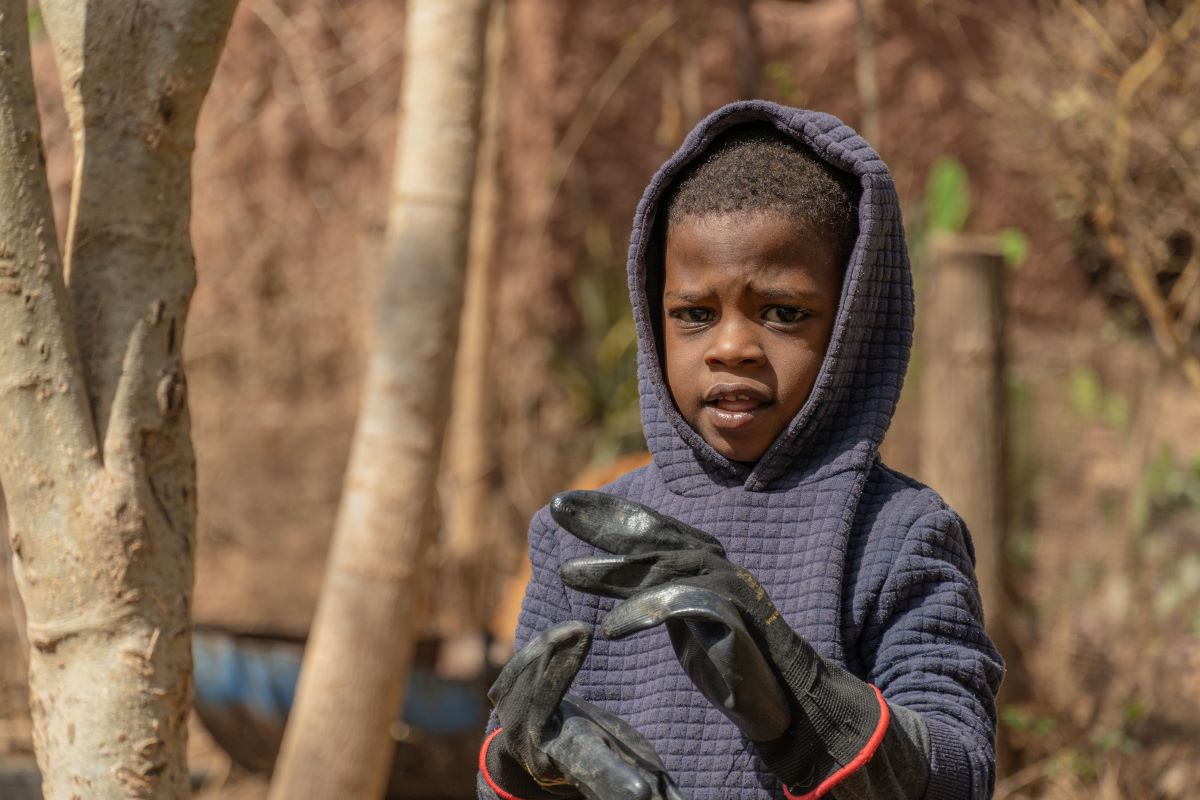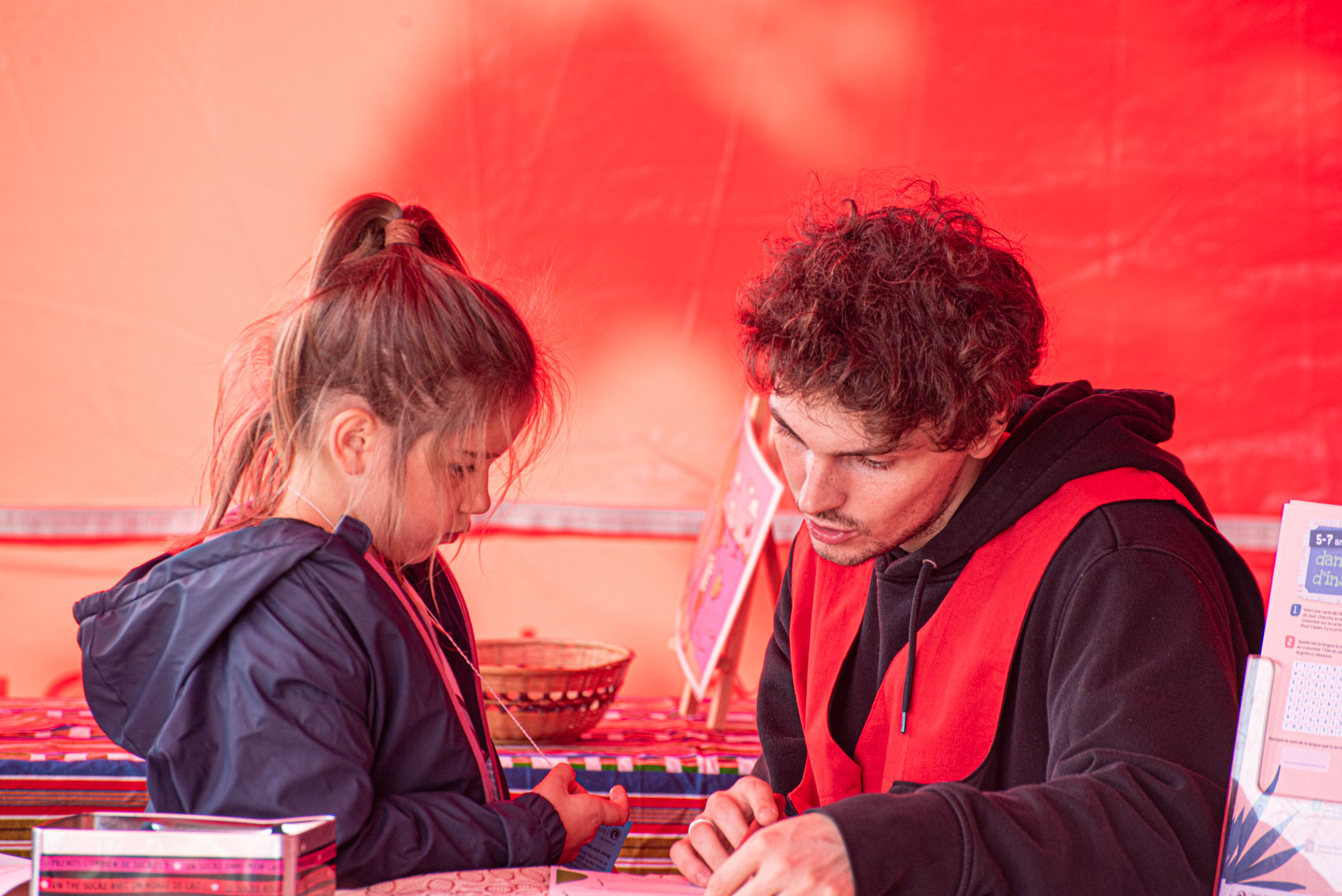Terre des Hommes Suisse would like to thank Dessy Damianova, a literature enthusiast and the author of this text, who worked with the Geneva Communications team to produce this text.
Terre des Hommes Suisse takes the name of its organisation from Antoine de Saint-Exupéry’s novel “Terre des Hommes”. We have just celebrated the 75th anniversary of the publication of this novel, and this is an opportunity to look back at it and how it has shaped the spirit of the organisation.
A great reader of Exupéry, the founder of Terre des hommes did more than simply borrow the powerful, evocative and meaningful title that the French writer had chosen for his third novel; Edmond Kaiser has taken on board the general spirit of the novel, as well as several of its key ideas.
But what is the philosophy behind this story like no other? What are the main ideas behind a work that, like the swirls of sand burning in the middle of the Sahara that its author was almost familiar with, presents itself to its readers as a whirlwind of images, diverse impressions, thoughts and questions? An autobiographical essay, written in a fragmentary, even impressionistic way, halfway between prose and poetry, Saint-Exupéry’s Terre des Hommes is, despite its emblematic title, which sounds like a programme – anything but a manifesto, anything but a programme.

And yet, as the pages turn, we discover a common thread, a very specific philosophy that makes this astonishing essay-novel perfectly coherent and very much in keeping with its title. The philosophy in question is none other than that of a responsible and demanding humanism which, however poetically it may be expressed at certain points in the book, wants to see Man grow through concrete actions, full of meaning and useful to others.
But above all, the novel Terre des Hommes expresses the conviction of its author – an aviator– that something essential, major and superior must come to animate human life, which is otherwise doomed to mediocrity, a debasing routine, or even a kind of nothingness.
L’humanisme terre-à-terre de l’auteur français admet que l’être humain peut échapper à la médiocrité existentielle en vivant pleinement son appartenance à ce qu’il appelle “la communauté des hommes“, en assumant pleinement son rôle au sein de cette communauté, en se sentant utile, efficace et responsable. C’est aussi travailler avec d’autres, dans un même esprit de solidarité, de compagnonnage et de camaraderie, voire de fraternité, à la réalisation d’un objectif commun.
Here are a few sentences from the novel Terre des Hommes where Saint-Exupéry talks about all this:
So it is only by reaching for some summit, with full awareness of their own role and responsibilities in the common action, that men and women can escape the existential mediocrity in which the daily routine tends to envelop them, often made up of a lack of meaning, a loss of vision, a lack of purpose, and all the temptations of the easy way out.
The human being behind the man
But the Men in Terre des Hommes are also Man, the Human Being with a capital letter – the man or woman who, at a critical moment, in a time of trial, will approach us and, in a spirit of total empathy and solidarity, will offer us his or her help. Saint-Exupéry had experienced this, and he recounts it in what appears to be the climactic episode of his novel – the providential appearance of a Bedouin at a time when the writer-pilot and his mechanic Prévost, thirsty and exhausted after days of walking in the desert, thought they were lost, far from any human presence, forgotten in the middle of the sands.
To complete this article, we invite you to listen tothe France Inter podcast “In extremis, histoires de survie” (In extremis, stories of survival), which gives a magnificent account of this episode in the desert.
Saint-Exupéry immortalised this encounter withMan, which saved the two men from a death as painful as it was certain to be, in words full of emotion:
Antoine de Saint-Exupéry’s high opinion of human beings, his faith in their potential for generosity and empathy, and his refusal to see men and women wallow in mediocrity and a life devoid of meaning – any more than he would agree to be transformed into robots in a society that is increasingly automated, dehumanised and, more often than not, idolised by gain – are, above all, what make him one of the greatest humanists of his time.
Edmond Kaiser and Terre des hommes
Far beyond its title alone, Antoine de Saint-Exupéry’s novel Terre des Hommes has left its mark on the children’s rights organisation with its responsible and demanding humanism – right from the start.

An avid reader of Saint-Exupéry, Edmond Kaiser, founder of Terre des Hommes, shared the French writer’s reluctance to speak of pity and charity (“I hardly believe in pity… What ails me, soup kitchens cannot cure. “) when it came to making himself useful to people shaken by concrete events or – in the Exuperian perspective – by certain living conditions or specific working conditions that debase the “human quality” in men and women.
And if, as reticent about “charity” as the French writer was, from 1980 onwards, E. Kaiser would definitively give priority to urgent and direct action in favour of children (by devoting himself, in particular, to his new “Sentinelles” project and to the problems ofchildren who have suffered), his first creation, “Terre des Hommes”, would, for its part, come even closer to the type of humanism professed by Antoine de Saint-Exupéry in his work on children’s rights, even closer to the type of humanism professed by Antoine de Saint-Exupéry in all that this humanism, although less focused on urgency and the immediacy of action, dreamed of and hoped for as the advent of man/woman towards a life increasingly full of meaning, significance and responsibility towards others.
Terre des Hommes Suisse not only works to defend the fundamental rights of the child in the 10 countries where it is active, but also, through its local partners, supports all institutions and initiatives that work for the development of children and young people, to open up new prospects for them, to help them take flight towards new horizons.



In this sense, the school, the place where the sense of discovery and knowledge is cultivated and where vocations are awakened, is at the centre of Terre des Hommes Suisse’s attention. TdH Switzerland is working for a school that is accessible to all and for quality education that is integral and holistic, taking into account all the dimensions of a child’s development – cognitive as well as civic, relational, emotional and psychological.
The taste for responsibility and commitment that Terre des Hommes Suisse tries to instil and encourage in the young people it supports is also very “exupérien”. Thus the participation of children and young people has been placed at the centre of the organisation’s activities. The Children’s Conference in Switzerland and the Youth Councils in Latin America are just two examples.
Enabling children and young people to assert their desire to play an active role in tomorrow’s society by committing themselves, in particular, to a safer and fairer future that respects their rights.
High-flying pilot and poet of the earth
The Earth is everywhere in Antoine de Saint-Exupéry’s novel. The man who, prey to the “inexplicable love of flight”, had spent a significant part of his life in the air, loves the earth with a very special love. When he, the pilot, talks about it, it is always to touch on something universal, sometimes even something fundamentally original.
Saint-Exupéry celebrates the earth in all its forms: it is the “clay” and “human clay” that breathe so strongly of creation, origins and genesis, but it is also quite simply the native soil that the author-aviator and his companions received in three boxes when, during one of their missions, they were thousands of kilometres away from France: “Three green leaves grow there, and we caress them with our finger like jewels”.
For Saint-Exupéry, the earth was also the sand that inspired images of moving poetry: “Under the moon, the sand is pink”, at sunrise it is “the colour of honey” and has a “mysterious radiance”. Saint-Exupéry was also very poetic when he sang of the fruits of the land he loved so much.
Antoine de Saint-Exupéry also celebrates planet Earth – one among millions, the only one, ours. And even though he sometimes uses troubling words to describe its mysterious march through space, seeing it alternately as “a planet that carries us away” or as a “wandering planet”, the intense feeling of familiarity and emotional attachment dominates above all else. If we fly away from Earth, driven by a spirit of exploration and adventure, we will feel lost “in interplanetary space, among a hundred inaccessible planets, in search of the one true planet, the one that alone contained our familiar landscapes, our friendly homes, our tenderness”.
When Edmond Kaiserchose to name his organisation after the novel Terre des Hommes, he definitely did not think he was doing so well: in many respects, his project proved to be visionary. In recent years, Terre des Hommes Suisse has made significant progress in integrating ecological considerations into its activities, particularly in the context of its education for sustainable development and solidarity (EDDS) activities. Terre des Hommes Suisse, an NGO that defends the rights of children, has never ceased to be an organisation that works for the balance, well-being and fulfilment of young people. This development being closely linked to a clean, sustainable and healthy environment, children’s rights are now recognised.
When Edmond Kaiserchose to name his organisation after the novel Terre des Hommes, he definitely did not think he was doing so well: in many respects, his project proved to be visionary. In recent years, Terre des Hommes Suisse has made significant progress in integrating ecological considerations into its activities, particularly in the context of its education for sustainable development and solidarity (EDDS) activities. Terre des Hommes Suisse, an NGO that defends the rights of children, has never ceased to be an organisation that works for the balance, well-being and fulfilment of young people. This development being closely linked to a clean, sustainable and healthy environment, children’s rights are now recognised.
In June 2022, on the occasion of World Environment Day and echoing the United Nations’ recognition of the right to a healthy environment as a fundamental human right, Terre des Hommes Suisse launched the “Save my planet, save my rights” campaign: calling for environmental management that is more respectful of planetary limits and in favour of any action that contributes to the survival, sustainability and viability of our Earth and therefore of children’s rights.
Take action with Terre des Hommes Suisse to protect children around the world
Every donation makes a difference to a child’s life.
Thank you for your support!

